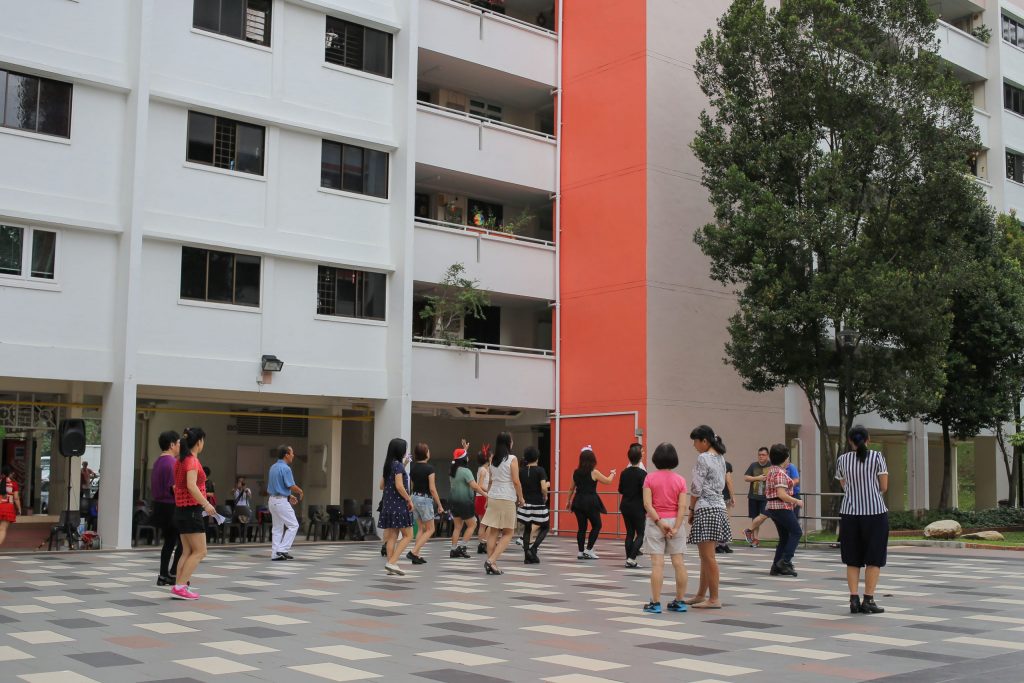Tampines Central: Government-Resident Partnerships at Work
August 13, 2022

The Housing Development Board (HDB) launched its sale of flats under the Build-To-Order (BTO) and Sale of Balance Flats exercise on 25th May 2021. The next BTO launch is projected to be held in August 2022.
The BTO system, which was started on 15th April 2001 by HDB, replaced the previous Registration For Flats System. Under the BTO system, potential buyers ballot for a chance to purchase a flat at particular sites across Singapore. Anxious buyers have access to information about these projects, allowing them to make informed purchasing decisions. A major supply-side advantage is that the BTO system ensures that flats are constructed according to assessed demand. This makes sure that precious resources are allocated efficiently. The system’s allocation mechanisms has been criticized for preventing all applicants under a single exercise from receiving a chance to purchase a flat. Re-applying under this scheme is not uncommon for home buyers in Singapore.
In ‘Tampines Central: Government-Resident Partnerships at Work’ (a chapter in Neighbourhoods for the City in Pacific Asia (2019)), Associate Professor Ho Kong Chong (NUS Sociology and Yale-NUS Urban Studies) uses Tampines Central as a case study to investigate how government-resident partnerships affected the creation of public amenities in the neighbourhood. He argues that recent developments in Tampines Central illustrate that these partnerships are valuable in community-building.
A team from the NUS School of Design and Environment conducted several rounds of consultation, focus group discussions, and feedback-gathering with residents of Tampines Central to determine the types of improvements residents would like to see in their area. In collaboration with relevant government agencies, the residents’ feedback led to the construction of five public amenity projects in the Tampines Central area.
A/P Ho analysed the consequences of government intervention in the Tampines Central neighbourhood at these five project sites. Using CCTV footage of the five projects, A/P Ho developed measures of public amenity usage which included the average time a person spent at a site, the nature of interaction between users of the site, and the number of users in a typical day. These elements were observed and recorded. In addition, A/P Ho provided a visual, activity, and interaction account of the sites. This involved him visiting the sites in Tampines Central and interacting with residents to determine the impact of these new sites on the residents’ public amenity usage habits.
Singapore’s housing policies are closely aligned with national objectives. Public housing estates and neighbourhoods are seen as sites for community-building and integrating individuals with multicultural identities. A/P Ho cites Singapore’s ethnic quota policies as an example of how housing policies have been used as a means towards the national objective of building one united people. Fostering social ties localized to an individual’s neighbourhood is an important way of building social cohesion within the country.
From the observational analysis of CCTV footage and his visual account of the sites, A/P Ho concludes that government-resident partnerships are valuable in co-creating particular amenities. This differs from the usual method of constructing public amenities without consulting residents in the area. He argues that the approach employed in Tampines Central motivated residents to use public amenities longer and more frequently, increasing the likelihood of interaction between the residents. Such interactions provided more opportunities for socializing. This illustrates the potential government-resident partnerships have in co-creating public amenities and spaces that foster community-building efforts and social cohesion. A/P Ho asserts that the success of government-resident partnerships demonstrated in Tampines Central can be adopted and implemented island-wide.
Read the book here.
A/P Ho will be discussing Neighbourhoods for the City in Pacific Asia at the NLB on 25 August at 6pm. Register to attend the event here: https://nus.edu/3NPzoOj
